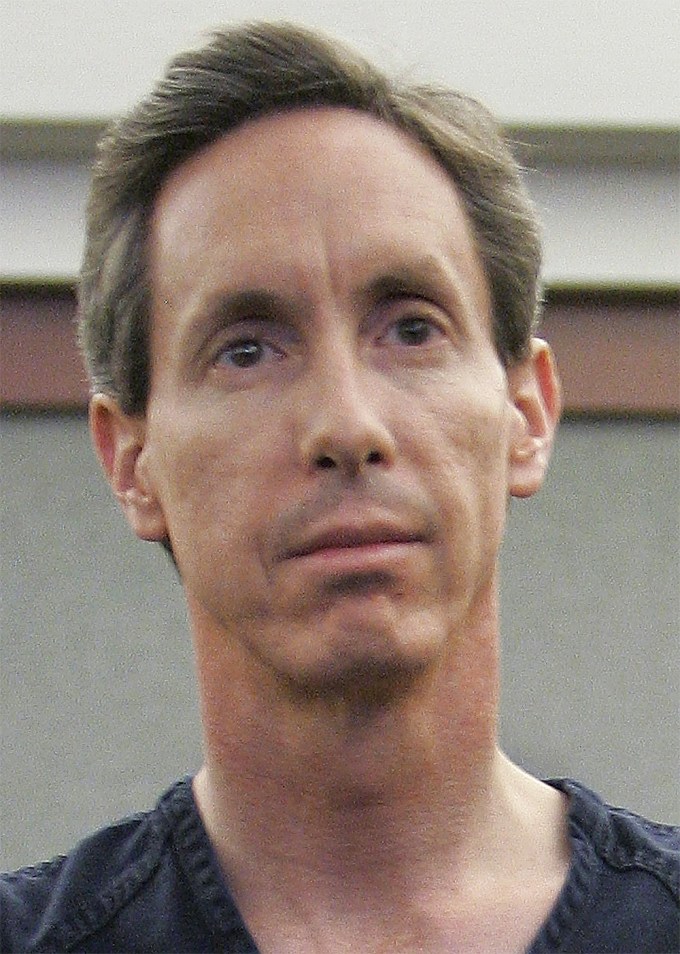Warren Jeffs is one of the most controversial religious leaders in modern history. As the leader of the Fundamentalist Church of Jesus Christ of Latter-Day Saints (FLDS), his name has become synonymous with controversy, control, and the dark side of religious extremism. His story is a complex blend of faith, power, and the consequences of unchecked authority. This article will delve into his biography, leadership, legal battles, and the lasting impact of his reign on his followers and society at large.
Warren Jeffs' rise to power within the FLDS church has captured global attention, sparking debates about religious freedom, child marriage, and the boundaries of spiritual leadership. His leadership style and the practices he endorsed have raised serious ethical and legal questions, making him a focal point for discussions on human rights and religious extremism.
As we explore Warren Jeffs' life and legacy, it is important to understand the context in which he operated and the challenges faced by his followers. This article aims to provide a comprehensive overview of his story, shedding light on the controversies surrounding his leadership and the implications for his followers and the broader community.
Read also:Unlocking The World Of Erome A Comprehensive Guide To Understanding And Using Erome
Table of Contents
- Biography of Warren Jeffs
- Early Life and Family Background
- Rise to Power in the FLDS Church
- Leadership Style and Beliefs
- Controversies Surrounding Warren Jeffs
- Legal Battles and Convictions
- Impact on Followers and Communities
- Media Coverage and Public Perception
- Criticism and Defense of Warren Jeffs
- Legacy and Future of the FLDS Church
Biography of Warren Jeffs
Early Life and Family Background
Warren Steed Jeffs was born on December 13, 1955, in Salt Lake City, Utah. He grew up in a family deeply rooted in the FLDS Church, which broke away from the mainstream Church of Jesus Christ of Latter-day Saints (LDS) in the early 20th century. His father, Rulon Jeffs, was the prophet and leader of the FLDS Church before him. Warren Jeffs' early life was shaped by the strict religious environment of the FLDS community, where polygamy and obedience to church leaders were central tenets.
Below is a summary of Warren Jeffs' personal information:
| Full Name | Warren Steed Jeffs |
|---|---|
| Birthdate | December 13, 1955 |
| Place of Birth | Salt Lake City, Utah |
| Family | Son of Rulon Jeffs, former FLDS prophet |
| Religion | Fundamentalist Church of Jesus Christ of Latter-Day Saints (FLDS) |
Rise to Power in the FLDS Church
Warren Jeffs' ascension to the leadership of the FLDS Church occurred after the death of his father, Rulon Jeffs, in 2002. As the prophet, Warren Jeffs quickly established himself as a dominant and authoritarian figure within the church. His leadership was characterized by a strict interpretation of the church's doctrines and an emphasis on absolute obedience to his authority.
During his early years as the leader, Jeffs focused on consolidating his power and reinforcing the church's practices, including polygamy and the assignment of marriages. His control over the community was absolute, and dissent was not tolerated.
Leadership Style and Beliefs
Warren Jeffs' leadership style was authoritarian and uncompromising. He believed in the divine right to lead and viewed himself as a prophet chosen by God. His teachings emphasized the importance of spiritual purity, which often translated into strict control over the personal lives of church members.
- Emphasis on polygamy as a central tenet of faith.
- Control over marriages and family arrangements.
- Strict enforcement of church doctrines and rules.
Controversies Surrounding Warren Jeffs
Warren Jeffs' leadership has been marred by numerous controversies, particularly related to child marriage and allegations of abuse. His practices have drawn scrutiny from law enforcement agencies and human rights organizations, leading to widespread condemnation.
Read also:Discovering Keely Coles A Comprehensive Guide To Her Life And Achievements
One of the most significant controversies involved the practice of assigning young girls, some as young as 12 or 13, to older men for marriage. This practice has been widely criticized as a form of child abuse and exploitation.
Legal Battles and Convictions
Warren Jeffs' legal troubles began in 2005 when he was placed on the FBI's Ten Most Wanted Fugitives list. He was eventually arrested in 2006 and faced multiple charges, including sexual assault and child sexual assault. In 2011, he was convicted in Texas on charges related to his role in arranging marriages between underage girls and adult men.
Jeffs is currently serving a life sentence plus 20 years in prison. His legal battles have highlighted the complexities of prosecuting cases involving religious practices and the challenges of balancing religious freedom with the protection of individual rights.
Impact on Followers and Communities
The impact of Warren Jeffs' leadership on his followers has been profound. Many members of the FLDS Church have faced significant challenges, including social isolation, economic hardship, and legal scrutiny. The strict control exerted by Jeffs over their lives has left many questioning their faith and seeking a way out of the community.
Efforts to support former members of the FLDS Church have gained momentum, with organizations and individuals working to provide resources and assistance to those who have left the community. These efforts aim to help them reintegrate into mainstream society and rebuild their lives.
Media Coverage and Public Perception
Warren Jeffs' story has garnered extensive media coverage, with documentaries, books, and articles exploring the complexities of his leadership and the FLDS Church. Public perception of Jeffs is largely negative, with many viewing him as a dangerous cult leader whose practices have caused harm to countless individuals.
However, some supporters within the FLDS community continue to defend Jeffs, viewing him as a persecuted prophet who is misunderstood by the outside world. This divergence in perspectives highlights the ongoing debate about religious freedom and the limits of spiritual authority.
Criticism and Defense of Warren Jeffs
Critics of Warren Jeffs argue that his leadership has perpetuated a cycle of abuse and exploitation within the FLDS Church. They point to the numerous legal convictions and allegations of misconduct as evidence of his harmful practices. On the other hand, defenders of Jeffs argue that his teachings are misunderstood and that the outside world fails to appreciate the spiritual significance of his leadership.
Regardless of one's perspective, it is clear that Warren Jeffs' legacy has had a lasting impact on the FLDS Church and its followers. The challenges faced by the community in the wake of his leadership continue to shape their lives and the future of the church.
Legacy and Future of the FLDS Church
The legacy of Warren Jeffs is a complex and controversial one. While his leadership has brought attention to the practices of the FLDS Church, it has also raised important questions about religious freedom, human rights, and the role of spiritual authority in modern society. The future of the FLDS Church remains uncertain, as its members navigate the challenges of maintaining their faith in a rapidly changing world.
Efforts to reform the church and address the issues raised by Jeffs' leadership are ongoing, with some members advocating for change while others remain committed to preserving the church's traditional practices. The outcome of these efforts will shape the future of the FLDS Church and its place in the broader religious landscape.
Conclusion
Warren Jeffs' story is one of power, controversy, and the consequences of unchecked authority. As the leader of the FLDS Church, his actions have had a profound impact on his followers and the broader community. Through his leadership, Jeffs has raised important questions about the boundaries of religious freedom and the responsibilities of spiritual leaders.
In conclusion, Warren Jeffs' legacy serves as a reminder of the importance of accountability and transparency in religious organizations. As we continue to explore the complexities of his story, it is crucial to approach the subject with sensitivity and an open mind, recognizing the diverse perspectives and experiences of those involved.
We invite you to share your thoughts and insights in the comments section below. Additionally, feel free to explore other articles on our site for more in-depth analysis of related topics. Together, we can foster a deeper understanding of the issues surrounding Warren Jeffs and the FLDS Church.

